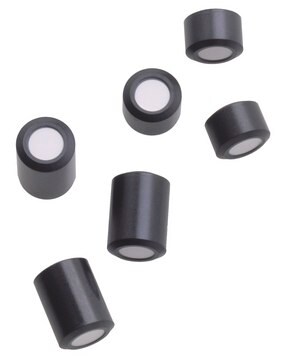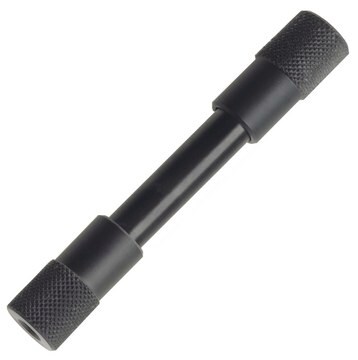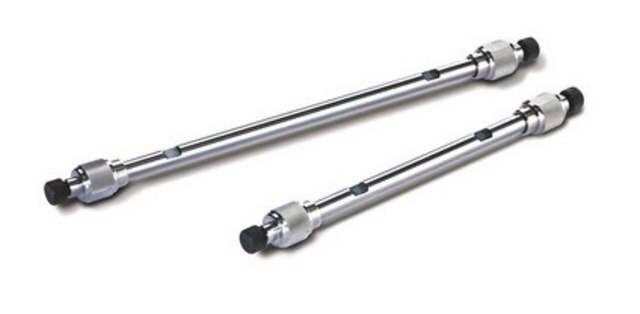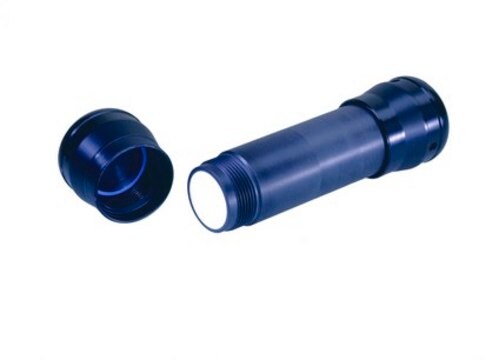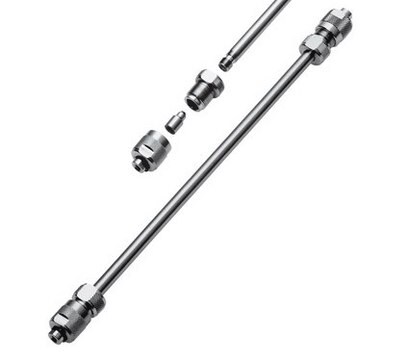1.51465
Chromolith® Si (monolithic) HPLC Columns
L × I.D. 100 mm x 4.6 mm HPLC Column
Sinônimo(s):
Chromolith® Performance Si 100-4.6 HPLC column
About This Item
Produtos recomendados
product name
Chromolith® Si, L × I.D. 100 mm x 4.6 mm HPLC column
Materiais
PEEK column
Nível de qualidade
Agency
suitable for USP L3
linha de produto
Chromolith®
Características
endcapped: no
embalagem
1 ea of
Parâmetros
200 bar pressure
45 °C max. temp.
técnica(s)
HPLC: suitable
LC/MS: suitable
mass spectrometry (MS): suitable (High)
coluna C × D.I.
10 cm × 4.6 mm
matriz
monolithic silica
Grupo ativo da matriz
Silica bonding phase
tamanho de poro
13 nm mesoporosity
2 μm macroporosity
operating pH range
2-7.5
técnica de separação
hydrophilic interaction (HILIC)
normal phase
temperatura de armazenamento
no temp limit
Procurando produtos similares? Visita Guia de comparação de produtos
Descrição geral
Chromolith® Si columns have macropores with 2 μm diameter, giving a column efficiency exceeding 80,000 plates/meter. The mesopores are 13 nm (130 Å). Chromolith® Si columns fall under the USP L3 Classification. The column efficiency is comparable to a 5 μm particle size fully porous particulate column. Chromolith® Si columns are suitable for LC-MS applications.
The column dimension of 100 mm length and 4.6 mm I.D. is the best choice for separations of complex samples on any HPLC System.
The revolutionary, monolithic silica with its unique combination of macropores and mesopores enables:
—Rapid separations at very low column back-pressure
—High matrix tolerance, allowing time and cost savings with simplified workflows
—Cost-savings due to extended column lifetimes
—Connection of columns, flow gradients and the use of mobile phases with higher viscosity
The recommended Guard-columns are:
Chromolith® Si 5-4.6 guard cartridges (3 pieces) [1.52011] with the Chromolith® Guard Cartridge Holder 5 mm x 4.6 mm [1.52032]
The Chromolith® column coupler can be used to significantly increase the separation efficiency of Chromolith® columns by coupling several columns in series (up to 100,000 plates/per column). [1.51467]
Learn more:
Brochure: Race through your Separations on Any System. Chromolith® Monolithic Silica HPLC Columns
All Supelco HPLC Columns, including monolithic Chromolith® columns, are fully compatible to all HPLC and UHPLC Instruments.
Supelco HPLC Products: The Best Choice for Any LC Instrument
Aplicação
- Improved separation and quantification of neutral and polar lipid classes: This study exemplifies the application of Chromolith® Si in environmental sample analysis, offering enhanced separation and quantification capabilities crucial for monitoring marine lipids (Graeve M et al., 2009).
- HPLC separation of some purine and pyrimidine derivatives: Highlighting the precision of Chromolith® Si in pharmaceutical research, this study focuses on the high-performance liquid chromatography separation of nucleobase derivatives, providing essential data for drug development (Kazoka H, 2007).
Nota de análise
Performance (2-nitroanisol)
Theoretical Plates (N/m) (2-nitroanisol): ≥ 80000
Capacity factor (2-nitroanisol): 1.4 - 1.9
Tailing (USP): 0.90 - 1.45 %
Selectivity
separation factor (2-nitroanisol/nitrobenzene): 3.45 - 3.95
Informações legais
Certificados de análise (COA)
Busque Certificados de análise (COA) digitando o Número do Lote do produto. Os números de lote e remessa podem ser encontrados no rótulo de um produto após a palavra “Lot” ou “Batch”.
Já possui este produto?
Encontre a documentação dos produtos que você adquiriu recentemente na biblioteca de documentos.
Artigos
Monolithic silica HPLC columns enable high-throughput analysis at low back pressure without loss of separation efficiency or peak capacity.
Chromolith® HPLC and UHPLC columns are made from monolithic silica with a bimodal pore structure using sol-gel technology.
Nossa equipe de cientistas tem experiência em todas as áreas de pesquisa, incluindo Life Sciences, ciência de materiais, síntese química, cromatografia, química analítica e muitas outras.
Entre em contato com a assistência técnica